Do you love spending time in the kitchen, cooking up delicious meals? Are you always snapping pictures of your food and sharing them on social media? If so, you may be wondering how to become a food blogger. It’s not as difficult as you may think!
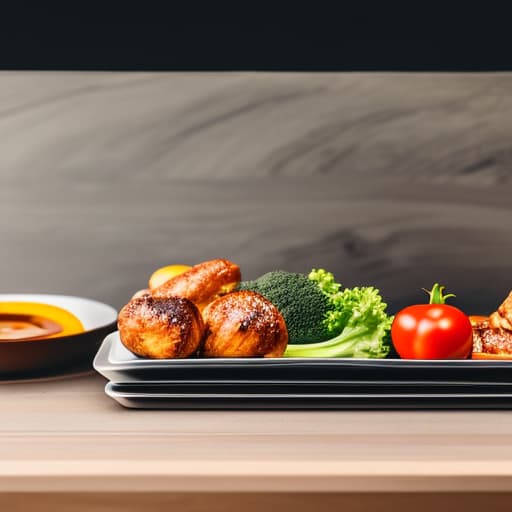
In this blog post, we will outline the steps that you need to take to start your own food blog. We’ll also provide some tips for getting started. So read on and learn how to share your culinary creations with the world!
Who Is A Food Blogger?
A food blogger is somebody who writes about food and everything that concerns it. Usually, a food blogger will have their own website or blog, although some may also contribute to other websites or publications.
For many people, being a food blogger is a way to share their passion for cooking and baking with a wider audience. It can also be a useful way to connect with other food lovers and exchange tips and ideas.
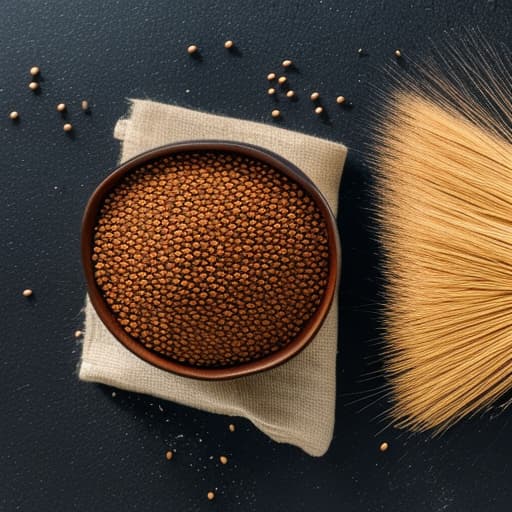
Some food bloggers also use their food blogs to promote healthy eating or raise awareness of issues such as food waste or hunger. Whatever their focus, all food bloggers have one thing in common: a love of good food!
The following are examples of successful food bloggers:
1. Ree Drummond
One example of a successful food blogger is Ree Drummond, who blogs about her experience as a city girl who married a rancher and moved to the country. Her blog, The Pioneer Woman, provides readers with detailed recipes, personal anecdotes, and beautiful photography.
2. J. Kenji Lopez-Alt
Another example of a successful food blogger is J. Kenji López-Alt, who blogs about his experience as a professional chef and culinary science writer. His blog, Serious Eats, provides readers with detailed information about different types of foods, recipes, and cooking techniques.
These examples demonstrate that there are many different paths to success as a food blogger.
How To Become A Food Blogger
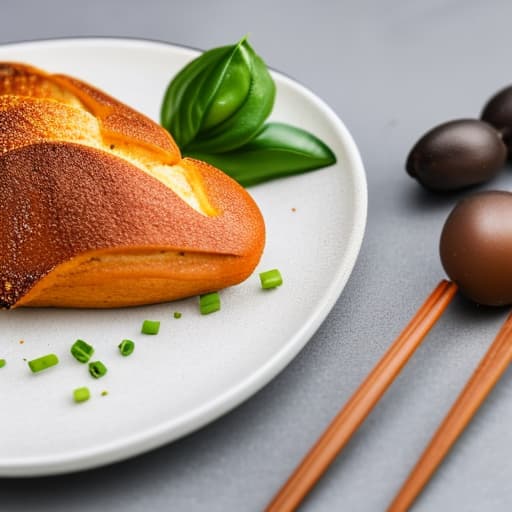
1. Start A Blog
You love food. You love to cook. You love to eat. But how do you turn your passion into a successful blog? For many people, the answer is simple: start a food blog. A food blog is a great way to share your recipes, cooking tips, and restaurant reviews with the world.
But starting a new blog can also help you build an audience for your work, connect with other foodies, and learn more about the blogging process. If you’re thinking about starting a food blog, here are a few things to keep in mind.
First, choose a catchy name and create a unique brand for your blog. Your name should be reflective of your personality and cooking style. If you’re serious about cooking, consider choosing a name that reflects your culinary expertise. For example, “The Serious Foodie” or “The Gourmet Cook.”
Alternatively, if you’re more casual in your approach to cooking, you might want to choose a fun and clever name like “The Hungry Foodie” or “Cooking Up a Storm.” Either way, make sure your name is memorable and easy to spell.
You can use a free domain and a reliable web host like WordPress or Blogger with free themes, or you can host your own website.
2. Find Your Niche
When it comes to starting food blogs, finding a food blog niche is one of the most important things you can do. A niche is simply a focus or specialty within the larger field of food blogging. For example, rather than trying to cover all types of recipes, you could focus on vegan baking or gluten-free cooking.
By narrowing your focus, you can become known as an expert in your niche, which will make it easier to attract readers and followers and increase your blog traffic. Additionally, by writing about a specific type of food, you can more easily come up with content ideas and stand out from the crowd.
Furthermore, by writing about a topic that you are passionate about, you can maintain your motivation and enthusiasm for blogging even when faced with challenging topics or difficult recipes.
So if you’re looking to start a food blog, take some time to find a niche that you can focus on. Doing so will help you build a successful food blog.
3. Take Great Photos
Any great food blogger will tell you that half the battle is taking great photos. People eat with their eyes first, and if your photos don’t look appetizing, you’re not going to get many readers. But how does one take great photos? It’s not as simple as just pointing and shooting. Here are a few tips:
First, think about the composition of your photo. What do you want the focus to be? The dish itself? The ingredients? The process of cooking? Frame your shot accordingly.
Second, consider the lighting. Is it natural light or artificial light? How bright is it? Shadows can be your friend or your enemy, so use them wisely.
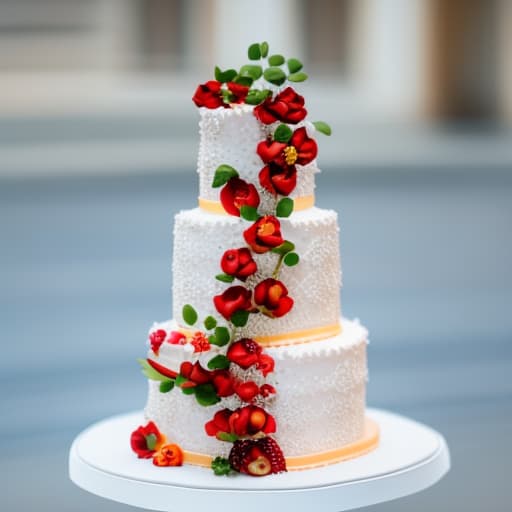
Third, pay attention to the colors in your photo. You want contrast and variety – a good mix of light and dark, warm and cool colors. And don’t forget about white space! Too much clutter will make your photo look chaotic.
Finally, take lots of shots! With digital cameras, there’s no excuse not to experiment. Take close-ups and wide shots, horizontal and vertical compositions. Play around with different angles and perspectives. The more practice you get, the better your photos will be.
People eat with their eyes, so make sure your photos are mouthwatering. Invest in a good camera, and learn some basic food photography techniques.
4. Write Engaging Content
In addition to gorgeous photos, your blog posts need to be well-written and engaging. In order to be a successful food blogger, it is essential to write engaging content. This means more than just sharing recipes – although that is certainly a part of it.
To truly engage readers, food bloggers need to paint a picture of their lives and their kitchen experiences. They need to make readers feel like they are part of the action and not just passively reading a blog post. One way to do this is to use active voice and descriptive language.
Instead of simply stating that you made a cake, for example, describe the process in detail, from the moment you started mixing the ingredients to the moment you took your first bite. By writing engaging content, food bloggers can create an emotional connection with their readers – and that is what will ultimately lead to success in this competitive field.
Share your passion for food through your food blog content, and give readers plenty of helpful information, such as cooking tips, product reviews, and restaurant recommendations.
5. Share Your Recipes
As a food blogger, it’s important to have a steady supply of recipes that you can share with your audience. One way to ensure that you always have new content to post is to regularly share recipes with other bloggers.
Not only does this help to broaden your own recipe repertoire, but it also helps to build relationships with other bloggers. When you share a recipe, you’re not only giving them something of value, but you’re also showing them that you’re an expert in your field.
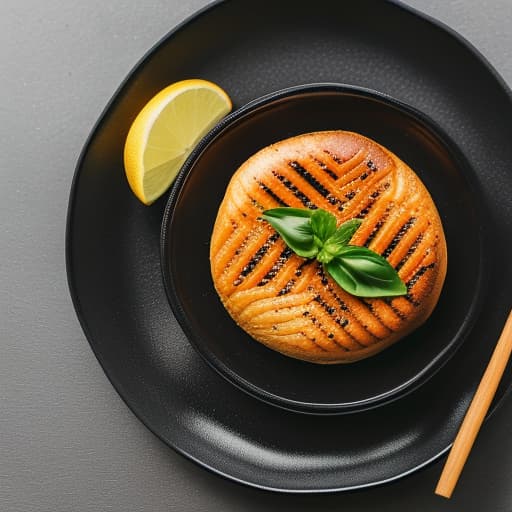
In turn, they may be more likely to share their own recipes with you, which can help to grow your blog. So, if you’re looking for ways to become a better food blogger, consider sharing your recipes with others. It’s a win-win situation for everyone involved.
A big part of being a food blogger is sharing your recipes with the world. Be sure to include clear instructions and plenty of photos to help readers make your dishes at home.
6. Promote Your Blog
If you’re thinking about becoming a food blogger, one of the first things you need to do is learn how to promote your blog. After all, there’s no point in putting all that time and effort into creating delicious recipes and beautiful photos if nobody knows your blog exists! Fortunately, there are a number of simple (and free) ways to get the word out.
- Use Social Media: One of the most effective ways to promote your blog is through social media. If you have a strong presence on platforms like Facebook and Twitter, you’ll be able to reach a large audience with just a few clicks. You can also become a food blogger on Instagram and make money online that way.
Make sure to post links to your latest recipes, and don’t forget to use attractive visuals and compelling descriptions to entice people to click. You should also take advantage of social media ads, which can be very effective in reaching new readers.
- Guest Post: Another great way to promote your blog is through guest posting. This involves writing articles for other blogs in your niche. Not only will this help you reach a new audience, but it will also show potential employers that you’re knowledgeable and talented in your field.
When looking for guest posting opportunities, be sure to target blogs that are popular in your niche. This will give you the best chance of reaching a large audience and driving traffic back to your own site.
7. Make Money From Your Blog
One of the main reasons people become food bloggers is because they want to make money from their passion. And fortunately, there are a number of ways to do this.
One option is to sell advertising space on your blog. This can be done through programs like Google Adsense, which will place relevant ads on your site. When readers click on these ads, you earn money.
Another option is to work with brands as an influencer. This involves promoting products and services on your cooking blog and social media channels. Brands will typically pay you a fee for sponsored posts, and this can be a great way to earn some extra income.
8. Keep Growing
If you’re serious about becoming a food blogger, it’s important to keep growing and learning. This means continually improving your cooking skills, expanding your recipe repertoire, and finding new ways to promote your blog.
One way to do this is by attending cooking classes or workshops. These can be a great way to learn new techniques and try new dishes. You can also attend food festivals and other events to get inspiration for your blog.
Another way to keep growing is by reading cooking blogs and books, watching cooking shows, and listening to podcasts. There are a wealth of resources out there that can help you to improve your skills and grow as a blogger.
So, If you’re thinking about becoming a food blogger, remember that it’s important to keep growing. As your blog grows, you’ll need to put in more time and effort to maintain your success. But if you’re passionate about food and cooking, it will all be worth it in the end.
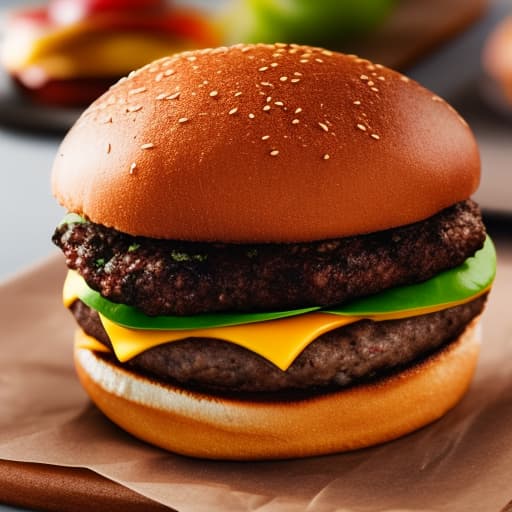
Tools You Need As A Food Blogger
As a food blogger, there are a few essential tools that you will need in order to build a good food blog. They are:
1. A Camera
First and foremost, you will need a good camera. This is important because your photos are what will draw people to your blog in the first place. A DSLR camera is ideal, but even a good point-and-shoot camera can work well if you know how to use it.
2. Editing Software
In addition to a camera, you will also need some basic editing software so that you can make your photos look their best. Photoshop is the gold standard, but there are also some great free options available, such as GIMP.
3. A Reliable Computer
Finally, you will need a reliable computer so that you can spend hours writing posts and editing photos. A laptop is usually the best option for food bloggers since it gives you the flexibility to work from anywhere.
With these essential tools, you will be well on your way to becoming a successful food blogger.
What Are The Differences Between a Food Blogger vs. a Food Vlogger?
Food vloggers and food bloggers are two distinct entities in the world of food content creation. A food vlogger is a content creator who primarily focuses on creating videos showcasing food-related content. These vloggers often record and edit videos highlighting recipes, cooking tips, restaurant experiences, and food reviews. You can check out the steps on how to become a food vlogger for details.
In contrast, a food blogger uses written content such as blog posts and recipes as a primary mode of communication. While bloggers may also feature videos or other media, the focus is on written content. Both food vloggers and bloggers can be influential in the food industry, with audiences ranging from foodies looking for inspiration to professional chefs seeking new ideas.
Below is a breakdown of 7 different areas between a food blogger and a food vlogger. From ways to monetize your food blog to selecting a domain name, we’ve got the differences below.
Content Format
- Food blogger: Creates primarily written content in the form of blog posts or articles.
- Food vlogger: Creates video content in the form of cooking videos, recipe tutorials, and restaurant reviews primarily.
Platform
- Food blogger: Typically operates their own website or blog where they publish their content and engage with their audience.
- Food vlogger: Typically shares their content on video-sharing platforms such as YouTube, Vimeo, or TikTok.
Content Type
- Food blogger: Focuses on sharing their experiences, thoughts, and opinions on food-related topics, as well as creating and sharing their own recipes.
- Food vlogger: Focuses on creating and sharing video content related to food, such as cooking demonstrations, recipe tutorials, or reviews of restaurants and food products.
Focus
- Food blogger: Puts an emphasis on writing and photography, as well as search engine optimization (SEO) techniques to attract more traffic to their blog.
- Food vlogger: Puts an emphasis on creating visually appealing videos, as well as video editing and post-production techniques.
Engagement
- Food blogger: Engages with their audience through blog comments, email newsletters, and social media channels such as Facebook, Instagram, or Twitter.
- Food vlogger: Engages with their audience through video comments, live streams, and social media platforms.
Content Expansion
- Food blogger: They may expand their content creation to include e-books, webinars, or other digital products related to food or cooking.
- Food vlogger: May expand their content creation to include travel vlogging, lifestyle vlogging, or collaborations with other food creators.
Monetization
- Food blogger: May monetize their blog through sponsored posts, affiliate marketing, selling digital products, or offering cooking classes or workshops.
- Food vlogger: May monetize their videos through sponsorships, brand deals, merchandise, or fan-supported platforms like Patreon.
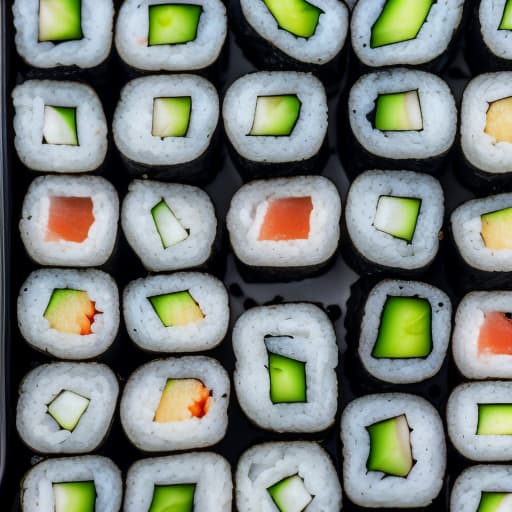
FAQs
What Is a Food Blogger?
A food blogger is someone who creates content online, primarily through blogging, about food-related topics such as recipes, restaurants, food trends, and nutrition.
How Do I Start a Food Blog?
To start a food blog, you should choose a blogging platform, such as WordPress, create a blog name and domain, and design your blog layout. You should then develop a strategy for content creation, such as recipe creation or restaurant reviews.
How Do I Make Money as a Food Blogger?
There are several ways to make money as a food blogger, including affiliate marketing, sponsored posts, advertising, and selling products such as cookbooks or cooking tools.
What Equipment Do I Need To Start a Food Blog?
To start a food blog, you’ll need a computer or laptop, a good camera, and basic kitchen tools such as a measuring cup, blender, or mixer. Additionally, you may need props like dishes, plates, or silverware and photo editing software.
How Do I Attract Readers To my Food Blog?
You can attract readers to your food blog by using social media to promote your content, collaborating with other bloggers, producing high-quality content, and engaging with your readers through comments and questions.
What Kind of Content Should I Create on my Food Blog?
You should create content that is engaging, educational, and informative about food-related topics. This can include recipes, restaurant reviews, cooking tips, and nutrition advice. You can also create content in the form of videos, photos, or podcasts to appeal to a wider audience.
Conclusion
Becoming a food blogger can be a great way to share your passion for cooking with the world. While it takes some time and effort to get started, it can be a very rewarding experience. If you’re interested in becoming a food blogger, follow the helpful tips in this post to get started.
Related Articles
How To Become a Travel Blogger and Get Free Stuff
Blogger vs. Vlogger: What’s The Difference?
How To Make Money Flipping IG Accounts: A Step-by-Step Guide



